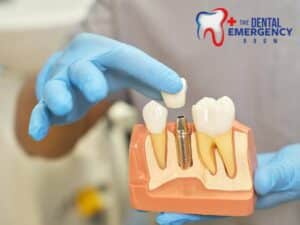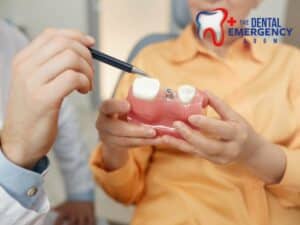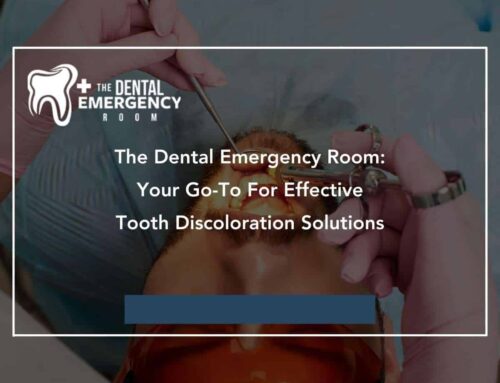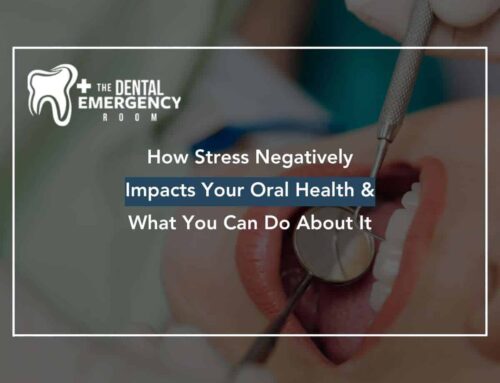Exploring Different Implant Types For Tooth Replacement Solutions
Losing a tooth can be a distressing experience, and many people have concerns about the impact it may have on their daily life. This is completely natural and understandable. After all, it’s not just an “aesthetic” concern. Having one or more missing teeth can also affect your ability to go about daily life. Chewing or even speaking can become challenging in these situations…
But what happens when you do lose a tooth? Does it mean everything is lost and your life will never be the same? Absolutely not. Modern dentistry offers advanced solutions for replacing missing teeth, and knowing which option fits your situation best is key. In this article, we’ll explain everything you need to know so you can determine which option is best for you.
What Are Dental Implants?

To emphasize the importance of dental implants, according to Boston Magazine, among adults aged 35 to 44, 69 percent have lost at least one permanent tooth. By age 50, Americans have lost an average of 12 teeth, including wisdom teeth. And among adults 65 to 74, 26 percent have lost all their teeth.
This makes dental implants a relevant solution for many adults and an important option in emergency dentistry when immediate tooth replacement is needed. Their success depends on osseointegration, where the implant fuses with the bone to create a strong anchor. With proper care, implants can last for decades!
Endosteal Implants: The Standard Option
Endosteal implants are the most common type and resemble small screws inserted directly into the jawbone. After the healing period, a crown is attached to restore function and aesthetics.
This type of implant is ideal for patients with healthy gums and sufficient bone density, as it provides a long-term, natural-feeling replacement. Choosing endosteal implants offers several advantages that enhance both function and comfort. Patients often notice:
- Strong and stable support for chewing and speaking, allowing the tooth to function just like a natural one.
- Longevity that can extend over 20 years, reducing the need for repeated procedures.
- Versatility, as they can be used for single or multiple tooth restorations.
In some cases, a bone graft may be required to increase jawbone volume. While this adds time to the process, it helps ensure a durable, lasting result and promotes overall jaw health.
Subperiosteal Implants: A Solution When Bone Is Limited
For patients who cannot undergo bone grafting, subperiosteal implants offer an alternative. These implants rest on top of the jawbone, beneath the gum tissue, and are secured with a custom metal framework. They are particularly beneficial for individuals with insufficient jawbone volume who are looking for a less invasive solution.
While subperiosteal implants may not last as long as endosteal implants, they still provide functional support and restore an aesthetically pleasing smile. Many patients find that this option is ideal when dealing with dental health challenges while also seeking to enhance their smile’s appearance.
- The procedure is shorter and less complex compared to bone reconstruction.
- The implant provides stability even when bone volume is limited.
- Chewing and speaking feel natural, boosting confidence in daily activities.
Overall, subperiosteal implants offer a viable solution for patients with insufficient jawbone volume, allowing them to restore function and aesthetics without undergoing extensive surgery.
Zygomatic Implants: When Upper Jawbone Is Insufficient
Zygomatic implants are a more complex solution, designed for patients with significant upper jawbone loss who are not candidates for standard implants. Instead of anchoring into the jaw, these implants are secured into the cheekbone (zygoma), which is naturally denser and stronger.
This approach works well for those wishing to avoid extensive bone grafts or sinus lift surgery. Patients considering zygomatic implants often appreciate that:
- They can restore a full smile even in cases previously deemed untreatable.
- The implants provide stability and durability comparable to traditional endosteal implants.
- Function and aesthetics are preserved, allowing normal chewing and speaking.
Though less common, zygomatic implants can dramatically improve quality of life for patients with severe bone loss.
All-on-4 Implants: Restoring a Full Smile
For patients missing most or all teeth, the All-on-4 technique offers a revolutionary approach. Four strategically placed implants support an entire arch of prosthetic teeth, often allowing patients to leave the office with a complete smile the same day.
This method is especially appealing for those who want full-mouth restoration without replacing each tooth individually, and it can also complement home remedies for tooth discoloration to help maintain a bright, uniform appearance. For instance, many patients find that:
- Immediate function and aesthetics are achieved in a single appointment.
- The need for bone grafting is often reduced.
- The smile restoration looks natural and feels secure.
All-on-4 implants allow patients to regain both confidence and functionality quickly, making them a popular choice for full-arch restoration.
Mini Dental Implants: A Less Invasive Option
Mini implants are narrower than standard implants, making them an ideal option for patients with limited bone density or smaller jaw structures. They are often used to stabilize dentures or replace small missing teeth.
While they may not last as long as standard implants, mini implants are a practical solution for certain situations. For example, patients appreciate that:
- Healing time is faster compared to traditional implants.
- The procedure is less invasive and more comfortable.
- Costs are generally lower while still providing reliable support.
Mini implants are especially useful if you’re looking for a gentle, cost-effective solution, and they can also support your efforts in brightening your smile while restoring the function of your teeth.
Materials: Titanium vs. Zirconia
Most dental implants are made from titanium. Titanium is preferred for most dental implants due to its strength, ability to fuse with bone, and biocompatibility, meaning it is well-tolerated by the body. Zirconia implants offer a metal-free alternative, ideal for patients with metal allergies or concerns about aesthetic appearance. Both materials provide excellent long-term outcomes, and the choice often depends on personal preferences, medical history, and budget.
Comparing Dental Implants To Other Restorative Options
Before choosing an dental implant in Clearwater, it’s helpful to understand how they differ from other tooth replacement methods:
- Bridges: Replace missing teeth but require altering healthy adjacent teeth.
- Dentures: Removable, less stable, and require daily maintenance.
- Crowns: Protect existing teeth but do not replace missing ones.
Dental implants provide superior stability, help preserve bone structure, and eliminate the inconvenience of removable devices. They can also play a role in improving cosmetic concerns, particularly for patients addressing causes of stained teeth or seeking a more uniform smile.
Maintenance Tips For Long-Term Success
Proper care is essential to maximize the lifespan of implants. Daily brushing, flossing, and regular dental checkups help maintain the health and functionality of implants. Unlike dentures, implants do not need to be removed or soaked overnight.
Patients interested in natural teeth whitening can combine cosmetic treatments on adjacent teeth with implant placement to achieve a bright, consistent smile.
Factors To Consider When Choosing An Implant

- Bone density and gum health.
- Number of teeth to replace.
- Budget and insurance coverage.
- Long-term goals for function and aesthetics.
A qualified dentist will evaluate these factors and develop a personalized treatment plan that maximizes both durability and appearance.
Make The Best Choice For Your Smile & Oral Health
Working with an experienced dentist ensures that the implant chosen aligns perfectly with your bone structure, oral health, and personal goals.
At The Dental Emergency Room, our team of dental implant experts in Clearwater will guide you through every step of the process, helping you explore the options that best suit your smile and needs. Contact us!
Dental Emergency Room
1935 Drew Street,
Clearwater, Florida 33765
Phone: 727-449-2424









Leave A Comment